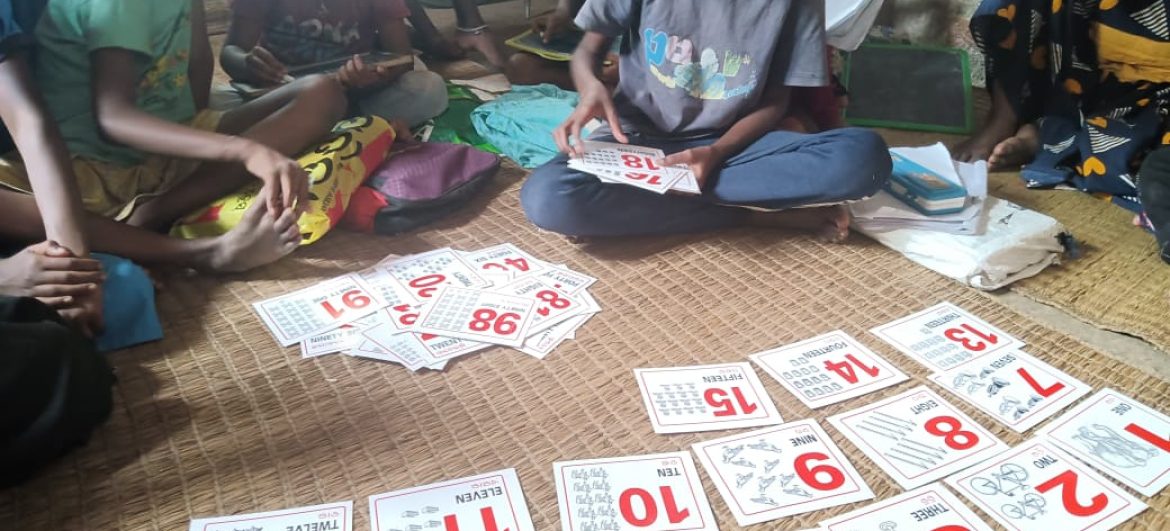Quis autem velum iure reprehe nderit. Lorem ipsum dolor sit nulla or narjusto laoreet onse ctetur adipisci.

Chale Chalo
Chale Chalo
Vision: To create an economically, socially, culturally, and environmentally sustainable society where people can realize their potentialities and lead dignified lives without poverty, distress, violence, injustice, and suffering, and a society free from child labor, gender, and social inequality, exploitation, and oppression among tribal, Dalit, women, children, and other marginalized communities, along with combating climate change, protection of the environment, ecology, and nature conservation
Mission: Working towards achieving sustainable development goals with a focus on eradication of extreme poverty, promoting quality education, health, and nutrition along with food, water, income, and livelihood security, gender and social equality, empowerment of marginalized sections, climate resilience, environment preservation, and disaster mitigation.
Strategies:
- Working with marginalized and vulnerable people/groups, and their empowerment for bringing positive changes in their situation.
- Capacity building and engagement of beneficiaries, project teams, and other key stakeholders.
- Community mobilization, developing organizations and leadership, and ownership of issues.
- Rights-based, inclusive, and participatory development initiatives and access to entitlements.
- Effective engagement with duty bearers/authorities to address issues and improve the situation.
- Collaboration and networking for learning, actions, best practices, and multiplying impacts.
- Improving accountability of the state for quality education, health, nutrition, and other services.
- Self-regulation, democratic values and functioning, non-violence, voluntarism, transparency, accountability, and adoption of best practices in organization and development initiatives.
- Maximum utilization of community, govt. PRIs and CSOs’ resources and avoiding duplication.
- Finding the root cause of illiteracy, poverty, discrimination, and violation of human rights and adopting multi-pronged approaches with stakeholders’ partnership to address them.
- Experimentation of development initiatives, model building, replication, and scaling up.
Locations: Currently the operational areas of the organization are spread to 65 villages in 03 districts (Kendrapara, Nuapada, and Kalahandi) of the state of Odisha. In Kendrapara district we work in Rajnagar, Mahakalpada and Pattamundai blocks (20 villages). In Nuapada, we work in Boden, Sinapali, and Khariar blocks (25 villages). And in the Kalahandi district, we work in the Golamunda block (20 villages).
Project updates: The current phase of the education project funded by the Wipro Foundation has been initiated by Chale Chalo in Rajnagar block of Kendrapara district in Odisha state since Sept 2021. Through this project, Chale Chalo has been developing and enhancing the organization’s education capacities and working towards improving the quality of education in government primary schools.
A core education team has been formed comprising 4 project staff with support from the Director and a voluntary core group of retired schoolteachers, headmasters, and resource persons. This year we have successfully run 03 remedial centers and supported more than 100 deficient learners from classes 1 to 5 in recovering their learning loss and achieving age and grade-appropriate learning competencies.
The education team has been working with school children, teachers, parents, education functionaries, SMCs, PRIs, community members, and other stakeholders to improve the quality of education in schools in a systematic manner. The organization has documented the processes of ensuring quality teaching-learning practices in remedial centers and shared the same with children, teachers, parents, the community, and other stakeholders.
Learnings and Challenges:
- A couple of team members faced difficulties participating in training sessions in Hindi or English. They are comfortable in the Odia language. We encourage them to speak in Odia and also support them to learn and communicate in simple Hindi/English slowly wherever possible.
- Basic understanding of education, NEP, NIPUN, and FLNs has contributed to improving the quality of teaching-learning practices in remedial centers and assigned classroom learning sessions
- Cordial relationships with teachers, school heads, CRCCs, BRCC, BEO, ABEO, DEO, ex/current principals of DIET, teachers trainers and RPs given the unique opportunity to work with the system, and official facilitation of knowledge and skills transfer on NEP, NIPUN, FLNs, and quality teaching-learning practices to 28 teachers of 20 schools as well as closely working with teachers and children of 04 government primary schools through quality classroom learning sessions
- Support of the education expert/resource organization “VIKRAMSHILA” is immensely important for the in-depth understanding of the nature and pedagogy of education with a focus on language and mathematics teaching/learning by team members, NEP-2020, NIPUN, FLN, curriculum, NCF-2022, syllabus, lesson plans, effective activity-based and joyful classroom transactions
- Past training of the Foundation of Education by the director and a couple of training sessions attended by a senior staff along with the involvement of retired teachers, headmasters, and teachers’ trainers in the project has been enormously useful in laying the strong foundation of the project and building the preliminary capacity of the team and school teachers
Plan for the next 3 years:
- Adding 02 more remedial centers and 02 education facilitators after Feb 2024 (total 05 RCs and 05 EFs) and continuation of gaining practical experience on quality teaching-learning practices, transferring them to 60 teachers of 30 schools through classroom learning sessions, achieving FLN in 05 schools by March 2026, model building and replication.
- Stakeholders (parents, SMCs. PRIs, etc.) on Quality Teaching-Learning Practices
- Building team and teachers’ expertise on the foundation of education, deeper understanding of NEP-2020, NIPUN Bharat Mission, NCF-2022, FLN and Quality Teaching-Learning Practices
- Continuation with developing, producing, arranging, and using the contextual and grade-appropriate TLMs on language and mathematics with school teachers
- Strengthening engagement with education functionaries at all levels to work effectively in selected schools and with teachers to achieve FLN and quality teaching-learning practices
- Team capacity building with systematic support and handholding by Vikramshila, other Wipro partners, RPs and organizations, conducting teachers’ training and workshops by the team, and mobilization of resources from other donors for running 10 additional learning centers and working in at least 20 primary schools for improving quality teaching-learning practices.
